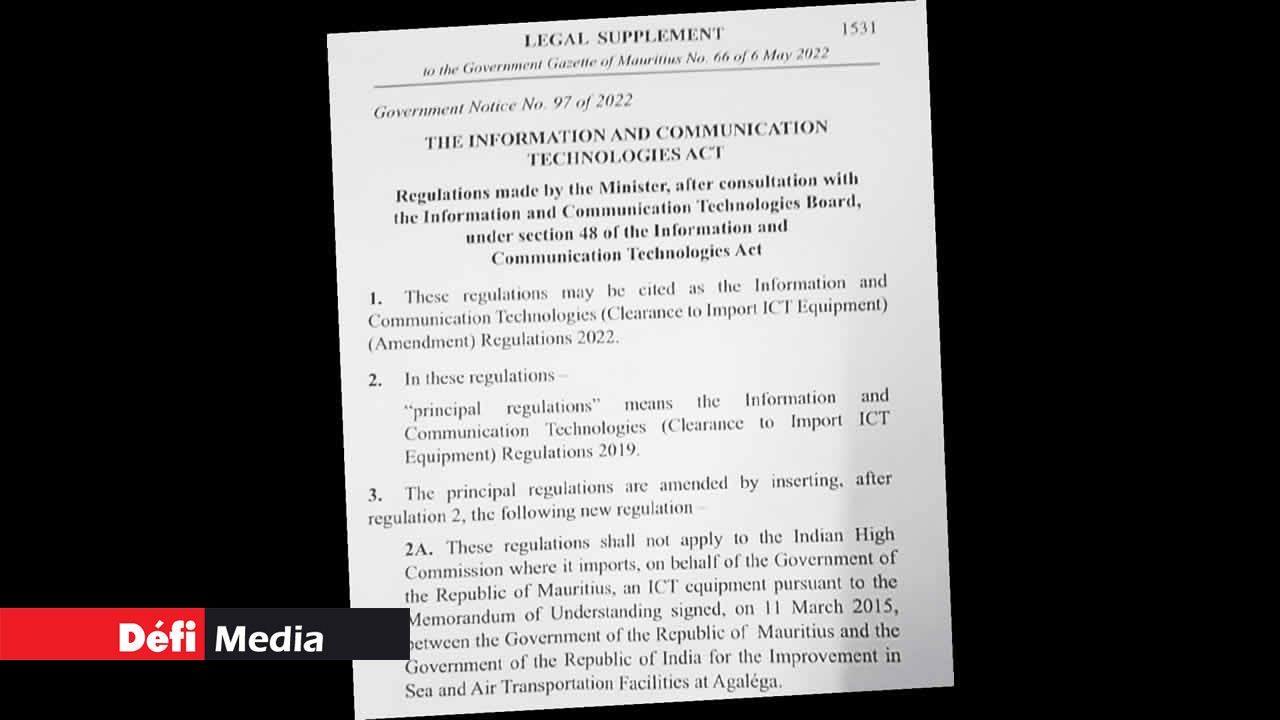Amendments to regulations that fall under the Information and Communication Technology Act give India a major exception. This allows the Indian High Commission in Mauritius to import, from 6 May, computer or telecommunications equipment without going through the procedures imposed on other importers of such equipment.
The Information and Communication Technology (Permission to Import ICT Equipment) Regulations (Amendments) regulates the procedure for importing such equipment.
Each importer must submit a request to the Information and Communication Technology Authority (ICTA) when he wishes to bring computer or telecommunications equipment into the territory of Mauritius. Therefore he had to hand over all the details related to this equipment. After verification, the ICTA decides whether to grant “type approval” to allow these imports or not. The document must then be submitted to the Mauritius Revenue Authority, which grants permission for the equipment to enter the territory.
This amendment was prepared by the Minister of Technology, Communications and Innovation, Deepak Balgobin, “after consultation with the Information and Communication Technology Council”, stating that “this regulation does not apply to the High Commission of India when it is ‘important to the Government of India. Republic of Mauritius, information technology equipment and communication (ICT).
It follows, stating this amendment, “A Memorandum of Understanding was signed, on 11 March 2015, between the Government of the Republic of Mauritius and the Government of the Republic of India for the improvement of sea and air transportation facilities in Agega”.
Consulted Thursday evening by Le Défi Quotidien, ICT-related legal experts were surprised by this amendment. He cited clause 3(2) of the ICT Act. It stipulates that “Ministers may, according to their terms and conditions, exclude government departments, parastatal bodies, non-governmental organizations, foreign governments or foreign non-governmental bodies, acting under international conventions or treaties and to which Mauritius and the government of that agency are signing. this law, in the interest of state sovereignty, national security, or public order. »
But, according to our expert, “in this amendment it is indicated that the release is granted after there is a memorandum of understanding. The MoU is just an intention and nothing more. This is in no way commensurate with conventions or treaties. And this is the question here, in addition, of exceptions in the name of a treaty that remains confidential.”
This amendment will allow, a priori, the Indian government to bring in equipment for the installation of technology required for sea and air surveillance, among others to operate the port and airport installations at Agalega. This infrastructure is fully financed by India.

“Twitter junkie. Hipster-friendly bacon expert. Beer ninja. Reader. Communicator. Explorer. Passionate alcohol geek.”







